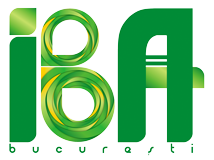The European Food Safety Authority (EFSA) recently issued a negative opinion regarding the use of magnesium orotate dihydrate as a novel food ingredient in dietary supplements intended for adults. The request was submitted by the European Commission, in the context of Regulation (EU) 2015/2283 on novel foods and Directive 2002/46/EC on food supplements.
What is magnesium orotate dihydrate?
Produced through chemical synthesis, this ingredient is proposed for use in food supplements at a maximum daily dose of 6100 mg, equivalent to approximately 400 mg of magnesium and 5000 mg of orotic acid. Although the stated goal is to increase magnesium intake, EFSA warns that this amount exceeds the established upper limit (UL) for supplemental magnesium, which is 250 mg/day.
Potential risks and reasons for rejection
EFSA highlights that the proposed dose of orotic acid could pose significant toxicological risks. Previous animal studies have shown tumor-promoting effects associated with this compound. Based on these findings, the ANS Panel (Additives and Nutrient Sources) established a NOAEL (No Observed Adverse Effect Level) of 50 mg/kg body weight/day.
Compared to this threshold, the proposed supplement dose would result in a safety margin of only 0.7, which is considered well below the acceptable level. Furthermore, the applicant did not provide any additional toxicological data to counter or clarify these safety concerns related to orotic acid or the compound as a whole.
Magnesium bioavailability – unclear
Another key issue is the bioavailability of magnesium from magnesium orotate dihydrate. EFSA noted that no comparative assessment was conducted between this synthetic form and natural sources of magnesium. Therefore, no scientific evidence is available to support the effectiveness of this compound’s absorption in the human body.
EFSA’s conclusion
In the absence of clear data on toxicological safety and bioavailability, EFSA concludes that magnesium orotate dihydrate cannot be considered safe for human consumption under the proposed conditions of use. Its inclusion in food supplements may be nutritionally disadvantageous and potentially hazardous, particularly due to the high content of orotic acid.
Source EFSA.

